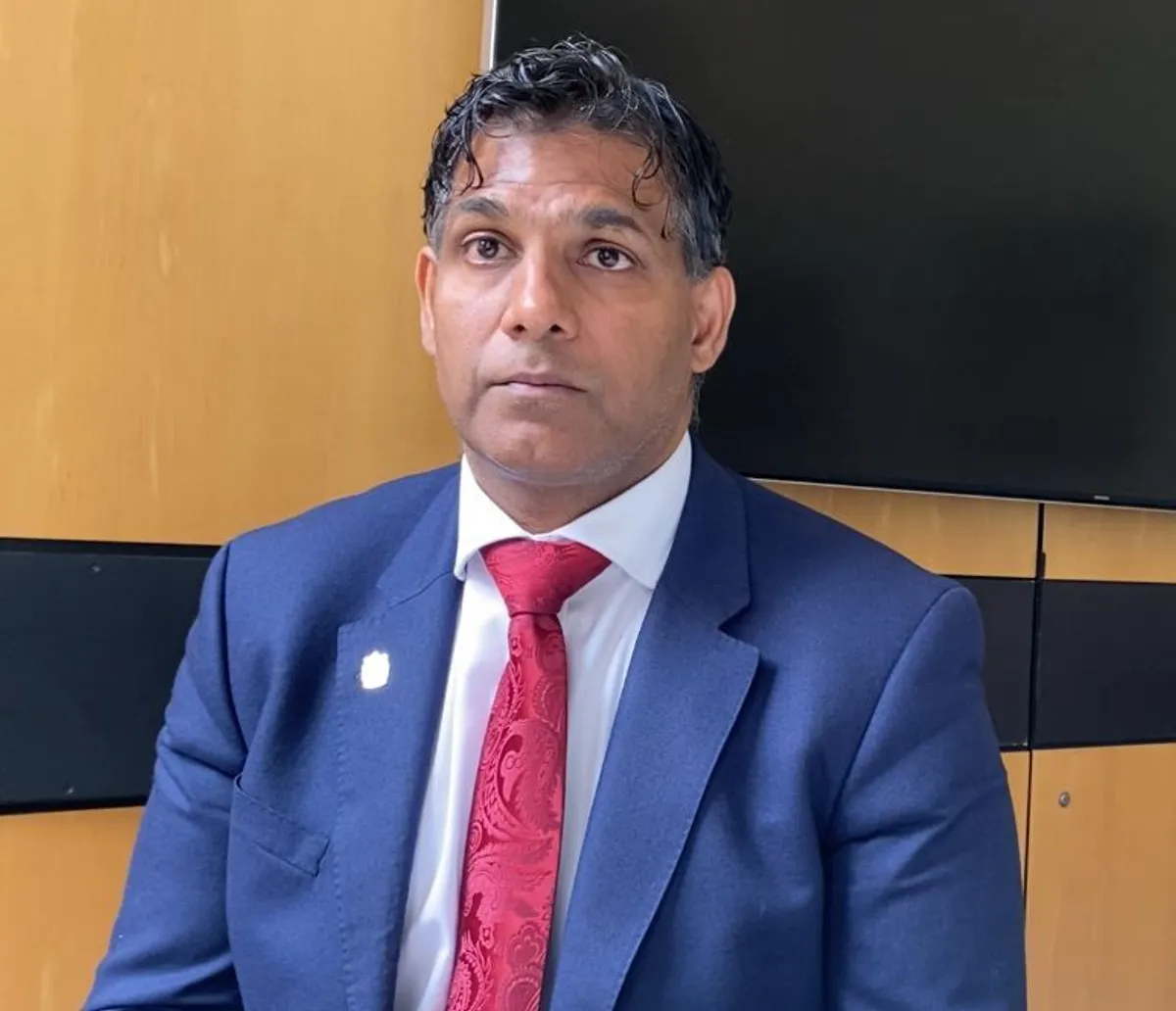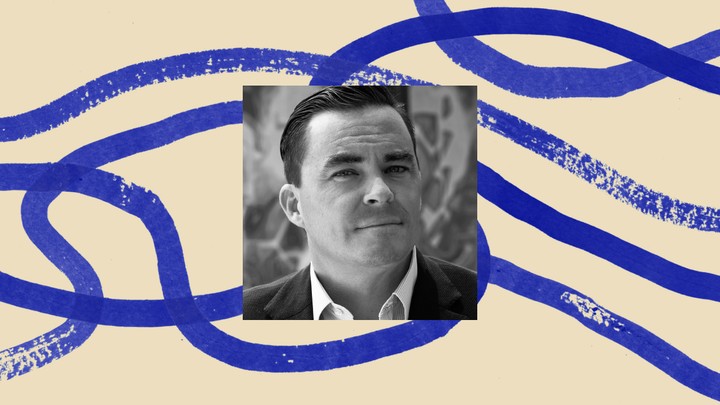I went to Thailand to escape the rat race, fell under the spell of a yoga guru… and only found out what his ‘healing’ really meant when he assaulted me
By Antonia Hoyle,Editor
Copyright dailymail

I went to Thailand to escape the rat race, fell under the spell of a yoga guru… and only found out what his ‘healing’ really meant when he assaulted me
By ANTONIA HOYLE, FEATURE WRITER
Published: 01:09 BST, 19 September 2025 | Updated: 01:18 BST, 19 September 2025
Mangala Holland stood on stage as the leader of her Thai yoga school leant forward to stain her forehead with grey ash, an ancient Hindu blessing at her final ceremony in recognition of her spiritual enlightenment.
But something inside her snapped. ‘I said, “I don’t want your blessing” and walked off in front of everyone,’ recalls Mangala, 52. ‘I was shaking. But I started to reclaim my power.’
Six years earlier, Mangala had left England for Asia, burnt out by her corporate job and on a mission to ‘find herself’. She settled in the Agama Yoga School. Yet what had started as a journey of self-discovery, surrounded by white sand, turquoise waters and coconut trees on the idyllic island of Koh Phangan, turned into a nightmare.
Agama was, she believes, ‘a dangerous cult’.
By the time Mangala left in 2015, allegations of misogyny, exploitation and abuse by the self-styled Swami Vivekandanda Saraswati – Swami is a Sanskrit word meaning lord or owner – abounded. On the review site Trip Advisor, former students spoke of his attempts to have sex with vulnerable women.
In 2018, 16 former pupils and staff supplied testimonials to The Guardian, describing Agama as a ‘sex cult’ in which sexual assault, rape and misogyny were facilitated, and women were brainwashed into having sex with the Swami, a Romanian whose real name is Narcis Tarcau.
Tarcau is believed to have fled Thailand, and the school closed in July 2018, apologising for ‘any harm that any Agama teacher may have caused’.
The following year, however, it reopened, with Tarcau once again in charge, where he remains today, leading not only yoga but the school’s teachings on Tantra, which sees sex as a pathway to a higher state of consciousness.
Burnt out by her corporate job, Mangala Holland went to Koh Phangan in Thailand to do yoga
‘I am horrified he is still there,’ says Mangala, who alleges she was sexually assaulted by Tarcau, and – in this exclusive interview – becomes the first Agama survivor to speak in depth of their ordeal.
‘I don’t want any other woman to go through what I did.’
In an unregulated yet increasingly popular wellness industry, in which ‘yoga is often the gateway drug’, abuse can be insidious, she warns: ‘People are indoctrinated in a feel-good environment where the sun is shining and everybody’s there to work on themselves. That’s the problem with being brainwashed – you don’t realise it’s happening.’
Now in a happy relationship with a 53-year-old company director, Mangala, from Frome, Somerset, works as a sex expert, ‘helping women discover their sexual confidence without exploitation’.
She was a 30-something IT trainer for a stockbroker firm in Manchester and caught in a vicious cycle of stressful working hours and heavy drinking when she first took up yoga.
Emerging from classes ‘buzzing’, she ‘started to connect to my body and feel better about myself’.
In 2009, by then 37, Mangala quit her job to visit India, ‘the home of yoga’, where she did a one-month introductory yoga course at a school in Rishikesh.
Six months later, she travelled to Agama in Thailand, founded by Tarcau in 2003 and one of the world’s biggest tantric yoga schools, accommodating up to 200 students, with branches in Colombia and Austria. ‘They positioned themselves as a “yoga university,”’ says Mangala, who says she wasn’t even aware Tantra was taught there.
She joined Agama, a yoga school which she believes was actually a dangerous cult
She paid around £100 a month for yoga classes plus extra for her bungalow on site. She made friends with other students, predominantly young, female and almost entirely Western and says initially she felt ‘safe’; ‘there was a lot of laughter’.
She had only planned to stay for six months, but when an opening came up for a part time job in reception at Agama, she accepted.
All this time, Tarcau had been away. When he returned for peak season in December 2010, Mangala had a full-time job as operations manager, in charge of the school’s administration, as well as continuing as a student.
In his late 50s, 6ft 4in, ‘massively overweight’ and dressed in orange gowns, he cut an imposing figure, yet was also charismatic. ‘He would swear and make jokes. We’d think of him as radical,’ she explains, ‘a lot of people in that community [felt they] didn’t fit in [in normal life]. He spoke to that. He said we were the “chosen, on a different path”. It made us all feel special.’
By 2011, and, she now believes, ‘indoctrinated’ enough to accept Agama’s more extreme ideology, including ancient detoxification rituals ‘like drinking litres of salt water, trying not to be sick, and doing strange body twists so it would flush out the other end,’ she enjoyed the actual yoga too much to question it: ‘The weirder ideas were drip fed when you were ingrained.’
In Spring 2011, she was told she’d needed to attend tantra workshops to ‘update training materials’ in her role as operations manager.
Although nervous, she says the classes were clothed, mainly involved maintaining eye contact with a partner, meditating, ‘a bit of gentle massage’ and touching non-intimate areas of the body.
‘It was about feeling you’re at one with the universe, or you’ve merged with your partner,’ she says. ‘If you were interested in exploring this in more depth, you were invited to do so “outside of this space.”’
Mangala, from Frome, Somerset, now works as a sex expert, helping women to ‘discover their sexual confidence without exploitation’
Which she did, her ‘explorations’ with partners who propositioned her around the campus leading to ‘transformative’ climaxes, ‘beyond the clitoral orgasms I’d had.’
Students were taught that polyamory was based around the Buddhist idea of detachment. This was convenient on a campus comprised of 75 per cent women, who were told to surrender to men.
Mangala says she was encouraged to see prospective male partners not in terms of their attractiveness, but ‘as a manifestation of the divine’. She now says she slept with men she never would have in her ‘right mind’.
That her partners had other women on the go ‘felt devastating, a betrayal’ she adds – not least because condoms were discouraged, ‘because it would break the flow of energy between a couple’.
Mangala says men were encouraged not to ejaculate ‘because that’s how you lose energy,’ so there were few pregnancy scares, ‘but huge levels of STDs in the community’. She was lucky not to contract one.
In 2012, her mother and father visited, staying in a nearby hotel. She had largely lost contact with friends back home because they were either still partying or had settled down with kids.
‘My parents thought I was in paradise,’ says Mangala. Albeit with a gruelling routine. She worked 12 hours a day, six days a week. She was paid around £250 a month, from which she had to fund her accommodation and food: ‘I was so busy I never had time to question anything – a deliberate tactic.’
She was often light-headed from fasting for up to seven days at a time, which she was told would remove impurities.
Mangala refused a blessing at her final ceremony after discovering that women in Agama were being groomed and sexually assaulted
By 2013, her weight had dropped by 2st to 5st 5lb and she was starting to develop an eating disorder, she says, until a friend persuaded her to eat more. She was far from alone in struggling: ‘I saw people have psychotic breakdowns. I would regularly see women crying on campus.’
In 2013 Mangala started to hear rumours that women were called to meetings with Tarcau ‘and assaulted’. Apparently he was both grooming students and forcing himself on them in his office or bungalow on site.
At first the reports were all third hand, recalls Mangala, and summarily dismissed by Tarcau as jealous women ‘making drama’. By 2014 she believes she was trusted enough for Tarcau to admit in her presence that he had sex with his students. ‘He positioned it as “if you want to master something, you learn from the master,”’ she recalls. ‘And so it was normalised. I felt sick.’
Yet she was also confused. Tarcau was a father figure, who represented her entire belief system.
One day in late 2014, she was called to his house to discuss her yoga practice, and what she was still ‘blocked’ on. ‘And he basically said, “Well here’s the answer to your blockages.”’ Did he assault her? ‘Yes,’ she says quietly. ‘I don’t want to go into the details because it is traumatic.’ When she tried to tell colleagues, she was ‘ostracised. Rumours went around that I’d gone “funny.”’
Much of this period is a blur, she says. ‘Looking back, my brain split in two to keep functioning – which I now know as cognitive dissonance. I was disgusted by the Swami, but separated him from the teaching, which I believed was pure.’
In May 2015, after a highly charged meeting, a member of the finance staff warned that the school was facing a financial crisis. He sent a follow-up email to all employees, including Tarcau, accusing him of speaking to staff in a ‘derogatory, demeaning and belittling manner, of ignoring an allegation of rape against a male member of staff and “harmful” outbreaks of STD on campus’.
Other members of staff replied in support. One female employee implied she was criticised for not being sexually available enough which, she said, reflected ‘a very narrow mindframe, in which I cannot find any spiritual value’.
Tarcau dismissed all concerns. ‘Working with tantric sex has always been a hot potato that nobody wants to hold, and we in Agama do it. And often have to endure reprisals due to it, and we will continue heroically,’ he wrote in the email chain, seen by the Daily Mail.
For Mangala, seeing her innermost fears voiced proved eye-opening. ‘The veil dropped. I went from shock to anger and saw the school as it really was for the first time.’ Which is why, a month later, she refused a blessing at her final ceremony and left.
Most of the senior staff, similarly stunned, had the means to quit their jobs immediately.
‘I had no money and felt too ashamed to ask family for help,’ says Mangala. It was June before she had saved enough to buy a plane ticket to Melbourne, where she had friends. ‘I wasn’t ready to come home.’ As her plane took off she cried tears of relief. In Melbourne she found a job at a yoga studio run by a friend and started posting about the misogyny and abuse she’d witnessed at Agama on social media.
‘I started getting emails from women saying, “This happened to me at that school,”’ she recalls.
‘As I started to see the extent of the web of lies and manipulation I felt sick.’
The price I’ve paid for marrying Mr OK rather than Mr Right…
In 2018, following another alleged assault, a staff member told Mangala employees were trying to stamp out worrying practices at the school. When that failed, they gathered testimonials from women – including Mangala – who had been assaulted by Tarcau and male members of staff and went to the Press. According to The Guardian, two women in addition to Mangala claimed they’d been raped by Tarcau in private consultations, under the guise of spiritual healing. Alleged assaults included Tarcau penetrating women with his fingers against their will, groping them, or performing sex acts on them without consent.
Agama apologised for the ‘suffering expressed by many women’ and did not deny the allegations but said there was a ‘campaign of hate’ against the school.
Mangala filed a complaint about Tarcau to the Thai Consulate in Melbourne, who contacted Thai police. Nothing came of it due to the statute of limitations in Thailand – rapes must be reported within three months of the incident – but she says for her it ‘felt like closure’: ‘At least the authorities were aware.’
That September, Agama closed for ‘restructuring’ – but reopened within months, with Tarcau on the staff. An independent investigation commissioned by the school into the allegations was never published.
Mangala returned to England in 2020. Her work helping women find sexual empowerment through safe online courses is the best thing to come out of her ordeal. Her parents still don’t know the extent of what happened. ‘They know the yoga school turned out to be not what I thought. I tried to shield them as much as possible,’ says Mangala, who has given up yoga now.
Agama yoga school and Narcis Tarcau were approached for comment, but did not respond.
Her anger towards Agama and the wider wellness industry remains. For any woman searching for a wellness retreat in pursuit of fulfilment, she has a simple warning. ‘Scratch the surface and the idyllic setting and smiling photos of pretty women are not always what they seem.’
Additional reporting: Deborah Cicurel
mangalaholland.com
Share or comment on this article:
I went to Thailand to escape the rat race, fell under the spell of a yoga guru… and only found out what his ‘healing’ really meant when he assaulted me
Add comment



